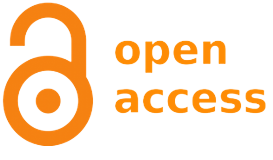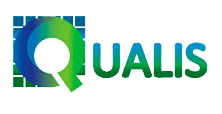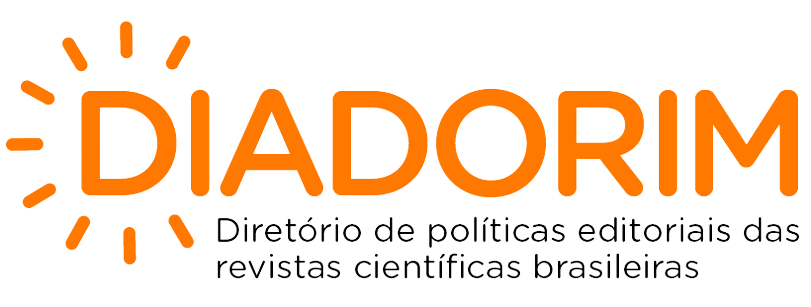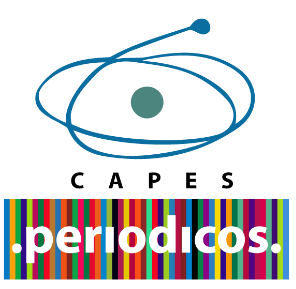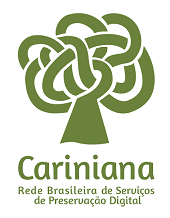Recognizing, translating and appropriating information
the portuguese version of a taxonomy at the service of research in Digital Humanities
DOI:
https://doi.org/10.5433/2317-4390.2022v11n2p119Keywords:
Tadirah, Multilingual vocabulary, Taxonomy, Digital HumanitiesAbstract
Objective: To present and discuss the possibilities and challenges inherent to the translation and appropriation by the Global South of the instrument of organization and representation of knowledge relevant to Digital Humanities, built by initiatives of the Global North.
Methodology: It was divided into two parts, the first being a bibliographic survey and literature review to discuss the theme, and the second the experience report of the translation and implementation project of a multilingual platform dedicated to a taxonomy for digital research and methods applied to the broad area of Humanities.
Results: During the translation of the multilingual controlled vocabulary, the context of the users was taken into account so that the taxonomy reflected the reality of Digital Humanities in Brazil. Of the 129 terms that compose it, only 3 were left untranslated because they did not have a correspondence in Portuguese and because their use did not make sense to Brazilian users in their mother tongue.
Conclusions: It points out that the continuity of the translation work of new terms is essential since the tool covers different disciplines of the Humanities and contributes to a greater circulation and access of information in these areas, especially in perspective to the Global South and the possible challenges regarding the organization and representation of information and knowledge.
Downloads
References
AFANADOR-LLACH, María José; LOMBANA-BERMUDEZ, Andres. Developing New Literacy Skills and Digital Scholarship Infrastructures in the Global South. In: FIORMONTE, Domenico; CHAUDHURI, Sukanta; RICAURTE, Paola (Ed.). Global Debates in the Digital Humanities, Minnesota, EUA: University of Minnesota Press, 2022.
BALLARIS, Virginia Brussa. Otros laboratorios: discutiendo la extitución y de mocratización tecnocultural en los laboratorios de humanidades digitales iberoamericanos. Virtualis, v. 7, n. 13, p. 38-59, 2016. Disponível em: https://www.revistavirtualis.mx/index.php/virtualis/article/view/156. Acesso em: 03 ago. 2022.
BERRY, David M. The computational turn: Thinking about the digital humanities. Culture machine, v. 12, 2011. Disponível em: http://sro.sussex.ac.uk/id/eprint/49813. Acesso em: 03 ago. 2022.
BISCALCHIN, Ricardo; MOREIRA, Walter. Construção de vocabulários multilíngues: perspectivas culturais. Perspectivas em Ciência da Informação, v. 25, n. 4, 2020. Disponível em: https://periodicos.ufmg.br/index.php/pci/article/view/26929/20513. Acesso em: 2 ago. 2022.
BRASCHER, Marisa; CAFÉ, Lígia. Organização da informação ou organização do conhecimento? . In: ENCONTRO NACIONAL DE PESQUISA EM CIÊNCIA DA INFORMAÇÃO - ENANCIB, 9., 2008, São Paulo. Anais... São Paulo: ECA/USP, ENANCIB, 2008. Disponível em: https://brapci.inf.br/index.php/res/v/176535. Acesso em: 2 ago. 2022.
DOMBROWSKI, Quinn; PERKINS, Jody. TaDiRAH: Building Capacity for Integrated Access. Dh+lib, 2014. Disponível em: https://acrl.ala.org/dh/2014/05/21/tadirah-building-capacity-integrated-access/. Acesso em: 2 ago. 2022.
FIORMONTE, Domenico; CHAUDHURI, Sukanta; RICAURTE, Paola (Ed.). Global Debates in the Digital Humanities. Minnesota, EUA: University of Minnesota Press, 2022. Disponível em: https://dhdebates.gc.cuny.edu/read/global-debates-in-the-digital-humanities/section/e8110c52-f084-44d2-a29f-1ef4525ad1fe#node-b846b07a08ec3cb145d94697d0f2a5f95dfa8944. Acesso em: 2 ago. 2022.
FIORMONTE, Domenico. Las plataformas digitales y el BIG RESET del conocimiento. Technodiversity, v. 1, n.2. 2021. Disponível em: https://journals.openedition.org/rac/22689. Acesso em: 2 ago. 2022.
FLORIDI, Luciano. The information society and its philosophy: Introduction to the special issue on "the Philosophy of Information, its Nature, and future developments". The Information Society, v. 25, n. 3, p. 153-158, 2009. Disponível em: https://www.tandfonline.com/doi/abs/10.1080/01972240902848583. Acesso em: 03 ago. 2022.
HALL, Gary. Toward a postdigital humanities: Cultural analytics and the computational turn to data-driven scholarship. American Literature, v. 85, n. 4, p. 781-809, 2013. Disponível em: https://doi.org/10.1215/00029831-2367337. Acesso em: 03 ago. 2022.
HUDON, Michèle. Accessing documents and information in a world without frontiers. The Indexer, [s.l.], v.21, n. 4, p. 156-159, 1999. Disponível em: https://www.researchgate.net/profile/Michele-Hudon/publication/228560740_Accessing_documents_and_information_in_a_world_without_frontiers/links/560c174508ae73e7a6a2d987/Accessing-documents-and-information-in-a-world-without-frontiers.pdf. Acesso em: 2 ago. 2022.
HUDON, Michèle. Multilingual thesaurus construction: integrating the views of different cultures in one gateway to knowledge and concepts. Knowledge Organization, Würzburg, v.24, n. 2, p. 84-91, 1997. Disponível em: https://www.nomos-elibrary.de/10.5771/0943-7444-1997-2-84.pdf. Acesso em: 2 ago. 2022.
LAMBE, Patrick. Organising knowledge: taxonomies, knowledge and organizational effectiveness. Oxford, England: Chandos, 2007.
PIMENTA, Ricardo Medeiros. Por que Humanidades Digitais na Ciência da Informação? Perspectivas pregressas e futuras de uma prática transdisciplinar comum. Informação & Sociedade, v. 30, n. 2, 2020. Disponível em: https://periodicos.ufpb.br/ojs2/index.php/ies/article/view/52122. Acesso em: 03 ago. 2022.
SAUSSURE, Ferdinand de. Curso de linguística geral. São Paulo: Cultrix, 2006.
Downloads
Published
How to Cite
Issue
Section
License
Copyright (c) 2023 Tainá Regly, Ricardo Medeiros Pimenta, Marcia Teixeira Cavalcanti, Elizabeth Maria Freire de Jesus, Renan Marinho de Castro

This work is licensed under a Creative Commons Attribution 4.0 International License.
A revista se reserva o direito de efetuar, nos originais, alterações de ordem normativa, ortográfica e gramatical, com vistas a manter o padrão culto da língua e a credibilidade do veículo. Respeitará, no entanto, o estilo de escrever dos autores. Alterações, correções ou sugestões de ordem conceitual serão encaminhadas aos autores, quando necessário.
O conteúdo dos textos e a citação e uso de imagens submetidas são de inteira responsabilidade dos autores.
Os trabalhos publicados passam a ser propriedade da revista Informação& Profissões, ficando sua reimpressão total ou parcial sujeita a autorização expressa da revista. Em todas as citações posteriores, deverá ser consignada a fonte original de publicação, no caso a Informação&Profissões.




